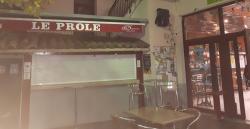By John Pickard
I have just completed a very arduous but at the same time very rewarding tour of France, speaking to meetings of worker-activists on two key issues in which they are extremely interested: Brexit and Jeremy Corbyn.
The first meeting was in Paris, in the headquarters of the French Communist Party (PCF), 10th arrondisement. This meeting really set the tone that was followed by all the others: it was attended by PCF and CGT members, and mainly industrial workers. There was a very lively interest in the reasons for and the background to the EU referendum vote in Britain, but also in the resurgence of the left in the British Labour Party.
Paris was followed by a meeting in the southern town of Alès, more than 700 kilometres away, near Avignon. Alès is an industrial town which has experienced a lot of closures of coal mines and steel works in recent decades. Like similar places in Britain, which have still not recovered from the Thatcher years, there is some disillusionment in the EU and the political process as a whole. A morning meeting was held in the town’s ‘Labour Exchange’ (Bourse de Travail) building in which the main trade union federations (CGT and CFDT), have offices where they can offer workers advice on employment, wages, pensions and other issues. The evening meeting took place above a cafe, called, appropriately, Le Prole.
I was surprised to learn that many activists in France had seen the Ken Loach film, I Daniel Blake, and so were all too aware of the depth of social problems and welfare cuts in Britain. Under Macron, workers in France are facing the same anti-trade union laws and an all-out assault on working conditions, in the much the same way that workers faced these things in Britain in recent years. Following Alès, the next meeting was in Tulle, 360 km further north, and another town suffering cuts in employment in recent years.
After Tulle, it was another long drive north to Versailles. This city is best known to tourists for its palace and associations with French kings and queens, but it is an important railway intersection and there are strong trade union traditions based in the SNCF. We were in Versailles early enough to attend a ceremony in the cemetery near the railway station, where every year members of the CGT trade union federation paid tribute to Communist Party and CGT members who were active in the Resistance during the Second World War and who were subsequently captured and killed by the Nazis.
Versailles was followed by an evening meeting in the city of Chartres, where the attendance of 40, overwhelmingly workers of all ages, was the biggest yet. From Chartres, it was off the Rouen in Normandy. Here, the French PCF newspaper, L’Humanité, was holding its regional festival. I was on a speakers’ panel with the national editor of L’Humanité, answering questions from the floor about Brexit and Corbyn again. Although the editor spoke mainly about the EU trade deal with Canada, there was a distinct feeling that the large crowd were particularly interested in the significance of Jeremy Corbyn’s two leadership election campaigns and the result of the recent snap general election – all of which have strengthened the left in the Labour Party.
Overall, the series of meetings was a very interesting experience. Although originally organised under the auspices of the French Marxist newspaper, La Riposte, in every case the meetings had been formally adopted either by the local branch of the PCF, or the CGT, or both. Whatever criticisms rank-and-file members had of the PCF leaders (and there were some), there is an explicit tradition of Marxism that runs like a red thread through the party history and through its membership. It was not surprising, therefore, that support for ideas like workers’ internationalism and nationalisation were so widespread and why there is a great deal of interest in the swing to the left experienced by the Labour Party in the last two years.
December 4, 2017



